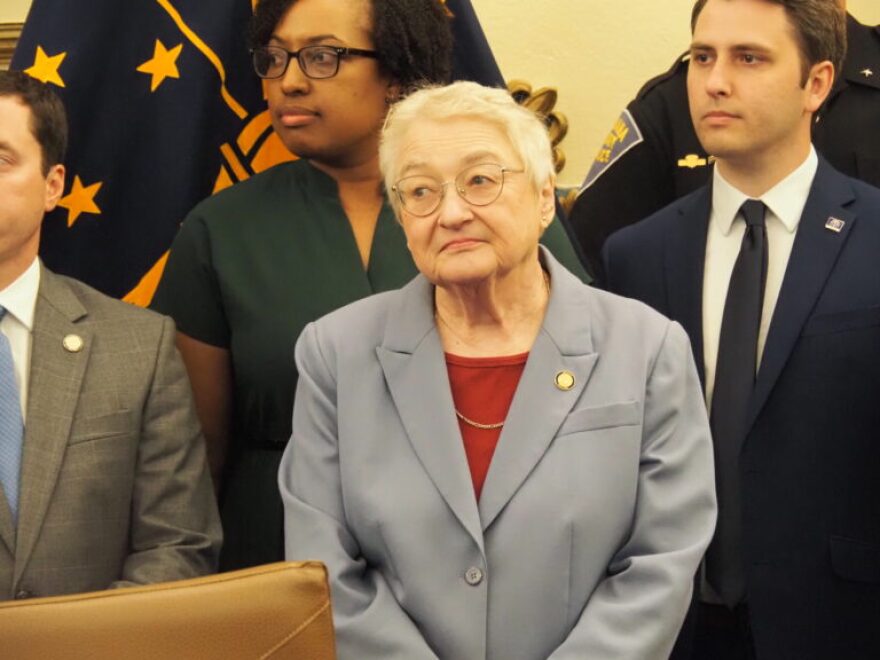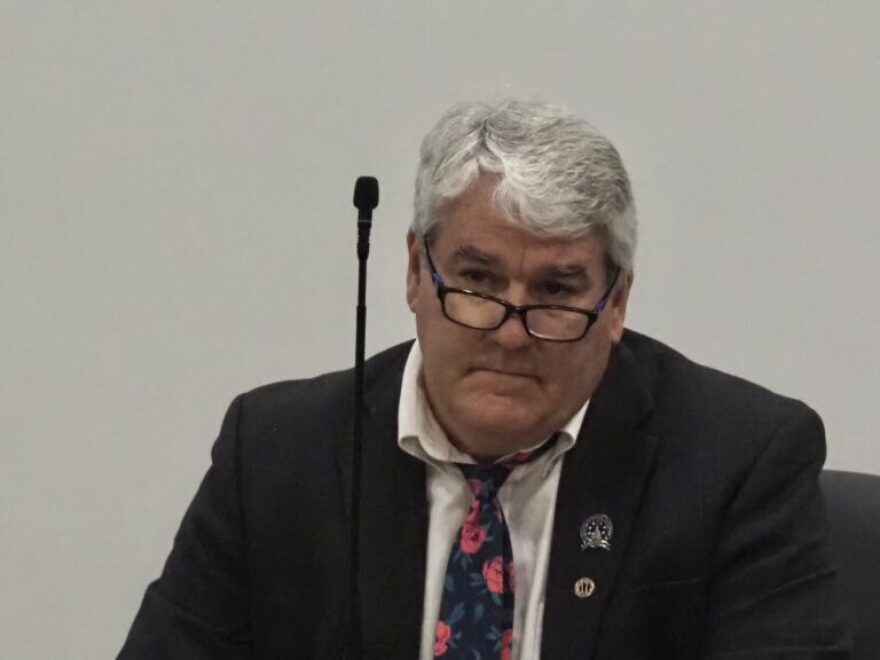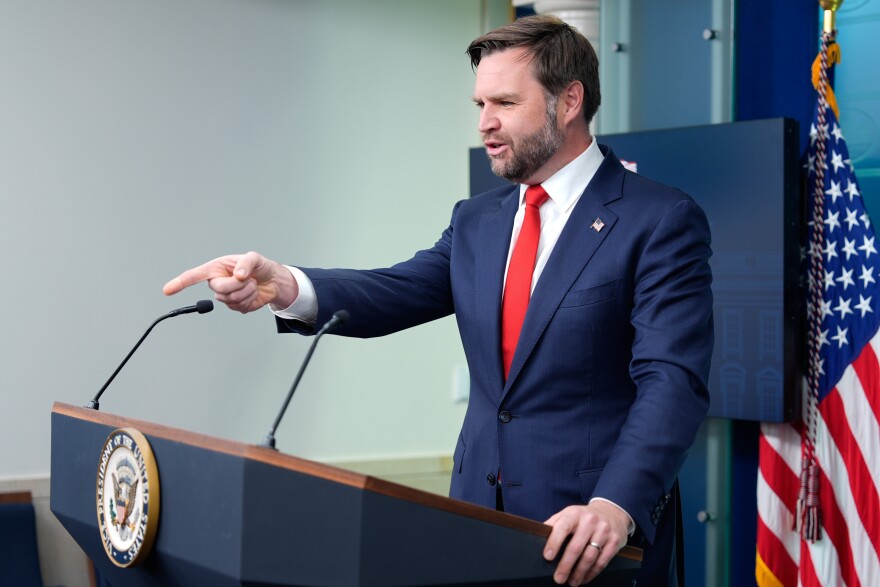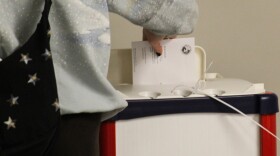Vice President JD Vance is slated to return to the Hoosier State on Friday to meet with Indiana’s Senate Republican caucus as redistricting deliberations appear to be at an impasse.
Multiple sources, including two Republican state senators, confirmed to the Indiana Capital Chronicle that Vance will meet with lawmakers in Indianapolis. The visit comes as state GOP legislators weigh a special session for mid-cycle redistricting — a move that has split some members of the party.
Sen. Sue Glick, R-LaGrange, told the Capital Chronicle most lawmakers she’s spoken with aren’t eager to reopen the maps.
“I think everybody wants to keep an open mind,” she said. “But, you know, the general attitude all along has been that nobody has much of an appetite for redistricting. I mean, we thought the maps we did before were fair.”

President Donald Trump is pushing GOP-led states like Indiana to redraw maps ahead of the 2026 midterm elections to ensure a Republican majority in the U.S. House for the rest of his second term. Redistricting is typically only done after the decennial census.
Indiana’s current map is 7-2 Republicans, with Democrats holding seats in northwest and central Indiana.
Glick also questioned the cost and optics of calling lawmakers back to Indianapolis.
“Why spend the money?” she asked. “We’re in a financial time when we’re telling every level of government to reduce spending. And then we’re thinking about spending six figures to bring us all back down there for a special session that nobody wants. It doesn’t sell well; it doesn’t feel right to do it. It doesn’t feel right to do it in terms of fairness, but it surely doesn’t feel right in terms of the financial — because there’s nothing to be gained and there’s a lot to be lost.”
The Indiana Senate Republican caucus has been largely silent about redistricting. Both House and Senate Republicans have held closed-door meetings on the topic.
The vice president’s visit will mark his second trip to Indiana in about two months. In August, Vance met with Gov. Mike Braun, Senate President Pro Tem Rodric Bray and House Speaker Todd Huston at the Statehouse to rally support for redistricting. Braun described the meeting as “pretty good,” but neither the governor nor legislative leadership signaled any firm commitment to the proposal.
Later that month, dozens of GOP lawmakers from Indiana’s House and Senate traveled to Washington, D.C., to meet with Vance and other federal officials about a variety of topics, including redistricting. Bray and Huston met in person with Trump during that visit.
Some Hoosier legislators said those conversations played a role in their decision to change their stance.
“I want to hear him again,” said Sen. Andy Zay, R-Huntington, referring to the vice president. “There’s a lot to consider there, and as with these roles, a lot of it’s policy and a little bit political. And this kind of slant of things is political. And, you know, those games have been played throughout history and certainly been played by our counterparts, and it’s something that maybe we haven’t done as good a job at. And I think that’s really driving the conversation.”

For most members, Glick said, the push for mid-cycle redistricting feels unnecessary.
“I don’t think there’s an appetite amongst the members of the General Assembly that I’ve talked to,” she said. “If you’re an aspiring politician and you want to go to Congress, maybe you think, well, here’s my chance. But, to be honest, for most of us — is this a fair thing to do? Is this the right thing to do?”
Braun has said repeatedly that he wants legislative leaders to reach a consensus before he would consider calling lawmakers back to the Statehouse.
In recent interviews, the governor emphasized that his role is to support — not drive — the process.
“I want it to be where it wasn’t forced upon our legislature, have our leaders talk to their own caucus members,” he told Fort Wayne’s WOWO radio last month. He added that lawmakers needed time to “weigh what good comes from it” before committing to any redistricting effort.
And he suggested Indiana’s relationship with the Trump administration might suffer if lawmakers don’t move forward.
Still, the governor has floated the idea of a November special session, saying he’s been “talking to leadership in both chambers” and would consider calling lawmakers back if Republicans have the necessary votes.
Glick said lawmakers tried to balance representation across districts when the maps were last redrawn in 2021.
“Obviously, we didn’t draw them to make sure that there was a 50/50 split across the state — that’s not what you do — but you try and be fair,” Glick said. “You try and make sure that every voter is represented.”
Indiana Capital Chronicle is part of States Newsroom, a nonprofit news network supported by grants and a coalition of donors as a 501c(3) public charity. Indiana Capital Chronicle maintains editorial independence. Contact Editor Niki Kelly for questions: info@indianacapitalchronicle.com.






